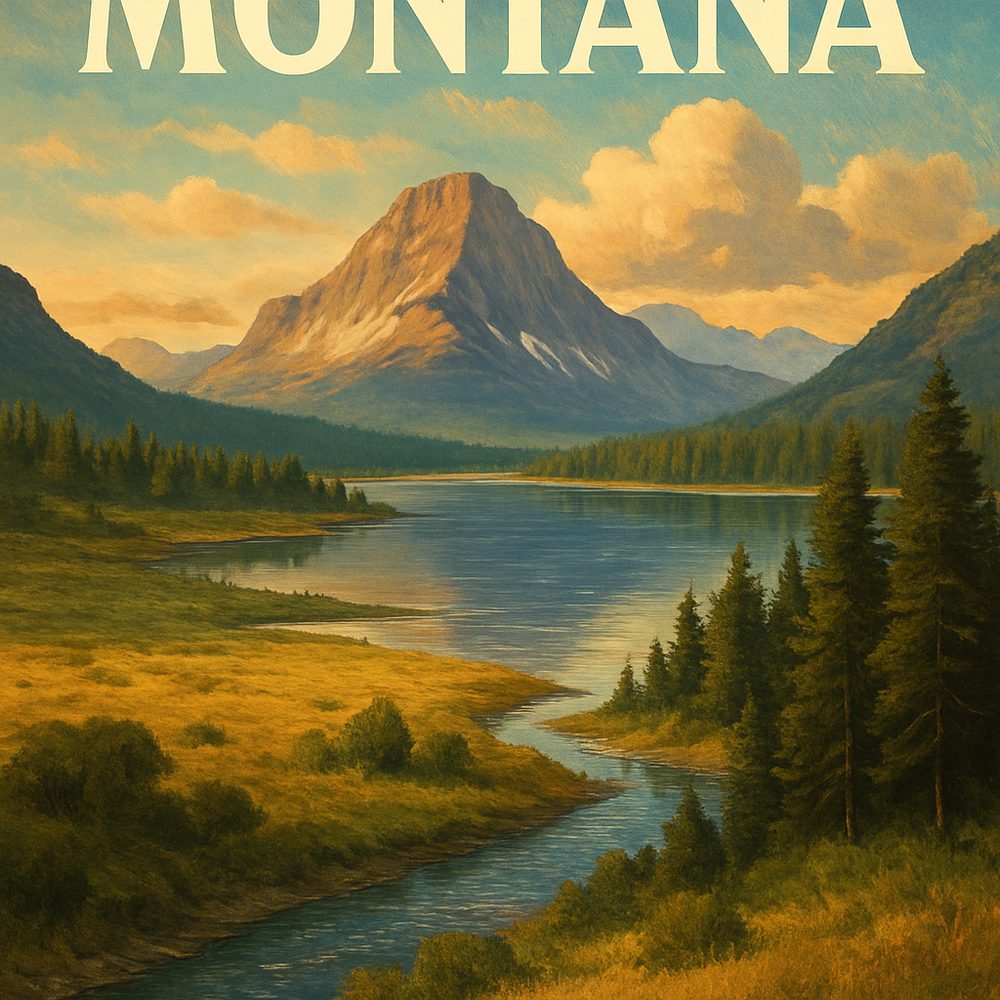A Foodie’s Guide to Montana: What to Eat and Where

In Missoula, about two and a half hours west of Billings, the bustling downtown district is a must-stop for anyone craving a taste of Montana’s vibrant food scene. Here, the Missoula Farmers Market spills over with fresh, locally grown produce on summer weekends, where you can sample huckleberries harvested from nearby Bitterroot Valley forests. At a nearby eatery like The Notorious P.I.G., you can savor Montana-raised pork prepared with a smoky, slow-cooked approach that honors the state’s ranching roots. The lively, artsy vibe of this riverside town makes every meal feel like a celebration of place, especially in warm months when patios fill with locals and visitors alike.
Traveling south toward the charming town of Bigfork, nestled on the northeast shore of Flathead Lake and roughly 30 minutes from Kalispell, you enter a region renowned for its fresh-water fish. At the Lakeside Grill, perched near the lake’s edge, trout caught from Flathead’s clear waters is often featured, grilled or pan-seared with just a hint of local herbs. The setting is unbeatable: sweeping views of the water and the Mission Mountains beyond create an atmosphere where the food tastes even better. Summer evenings here shine with sunset reflections on the lake, making it an idyllic spot to experience Montana’s natural bounty in a relaxed, waterside dining room.
In Bozeman, about 90 minutes north of Yellowstone National Park’s north entrance, the culinary landscape blends Western tradition with modern flair. The historic downtown district offers a variety of restaurants that showcase Montana’s game meats, but one standout is Montana Ale Works. Located in a former warehouse, this lively spot pairs craft beers brewed in-house with dishes like elk tenderloin and bison meatloaf. Its rustic industrial setting, complete with exposed brick and reclaimed wood, nods to the city’s pioneer past while celebrating its vibrant present-day food culture. Early fall, with crisp mountain air and colorful leaves around the Bridger Range, is a perfect time to enjoy heartier fare here.
Near the eastern border of the state, Glendive’s Makoshika State Park, about a half-hour drive west of the town, offers a different kind of foodie discovery—local beef prepared in hearty, straightforward fashion that echoes the frontier spirit. The nearby Badlands Bar & Grille serves up classic Montana fare, including thick-cut steaks sourced from regional ranches. After a day hiking the park’s dramatic badlands trails, which reveal fossil beds and hoodoo formations across 11,000 acres, the robust, satisfying meals here feel especially earned. Visiting in late spring or early fall can offer cooler temperatures for both outdoor exploration and a cozy meal afterward.
In Helena, the state capital about two hours southwest of Great Falls, the historic Last Chance Gulch district is a must for sampling Montana’s fusion of old mining town charm with contemporary culinary trends. The Placer Restaurant serves dishes sourced from local farms and ranches, emphasizing seasonal ingredients that reflect Montana’s agricultural heritage. Sitting in this restored downtown area, framed by the distant Helena National Forest, diners can savor dishes like Montana lamb or seasonal vegetables with a sense of connection to the land and history that shaped the city. Winter evenings here, with crisp air and twinkling lights, add a cozy, celebratory feel to the dining experience.
Just outside of Billings, in the valley carved by the Yellowstone River roughly 15 minutes north of downtown, the Yellowstone Valley Farmers Market offers an excellent opportunity to taste the state’s agricultural diversity. The market features fresh produce, artisanal honey, and homemade baked goods, giving a glimpse into the local foodways that sustain Montana’s people. Paired with a visit to the nearby Moss Mansion, where you can learn about the early 20th-century settlers’ lifestyle, this experience deepens your appreciation for how the land’s bounty shapes the local table. Early summer, when spring vegetables and berries come in, is the liveliest season to visit.
In Whitefish, about 20 minutes north of Glacier National Park’s west entrance, the town’s lively downtown is a hub for enjoying Rocky Mountain fare with an alpine twist. The Whitefish Lake Restaurant, perched on the waterfront, offers fresh wild game and freshwater fish dishes with a focus on sustainable sourcing. After a day exploring the park’s Going-to-the-Sun Road or hiking the relatively moderate Whitefish Trail, dining here lets you relax with views of the lake and surrounding peaks. Summer is especially magical, when the cool breeze off the water complements the flavors of regional ingredients.
From the wide-open plains near Miles City, roughly three hours east of Billings, to the rugged peaks around Red Lodge just over an hour south of Billings near the Wyoming border, Montana’s culinary offerings mirror its vast and varied landscapes. Each town and region highlights local ingredients—whether it’s the wild huckleberries from the Rockies or the bison raised on Northern Plains ranches—with restaurants and markets that invite you to taste the state’s authentic flavors against the backdrop of its breathtaking scenery. Exploring these places reveals how Montana’s food culture is deeply rooted in its geography, history, and community, offering newcomers a genuine slice of Big Sky life.